Full road test reviews of the 2021 Toyota Mirai, the second generation of our ground-breaking, zero-emission hydrogen fuel cell electric saloon, have arrived. What did members of the motoring press think of the car’s more emotional appeal and completely redesigned fuel cell system?
Below is a selection of excerpts from their assessments on UK roads. They are listed in alphabetical order and include a numerical rating where applicable. To read the full online reports, click on the emboldened links.
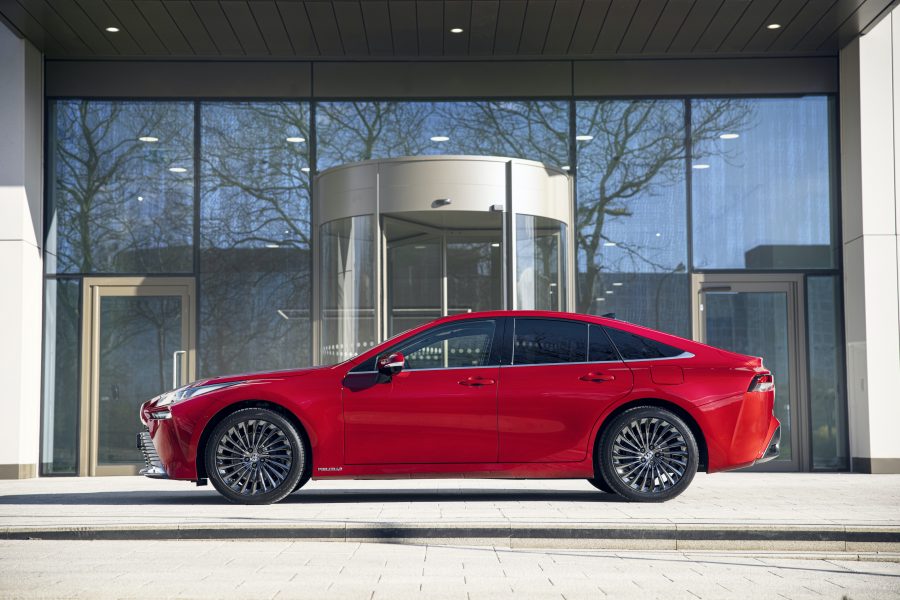
2021 Toyota Mirai reviews
Autocar: 4/5
Take a moment to reflect on how good the new Mirai looks. Toyota clearly wants [it] to stand out for more than how it’s powered. The changes… make it less a second-generation car, more an entirely new one. The fuel cell stack, now sited under the bonnet, is smaller and lighter. Output has increased… to 180bhp and drive is now sent to the rear.
Where the Mirai really scores is in the marvellous smoothness and quietness of its powertrain. That’s aided by a very pleasant interior, including… a nifty graphic [that] shows you how much air you’ve purified on your trip to make you feel all green and wholesome.
It really scores in the marvellous smoothness and quietness of its powertrain
The Mirai [can] do 400 emission-free miles on a full tank of hydrogen… [and it] is fully £10,000 cheaper than the original, despite being substantially improved in almost every aspect. But then the Mirai isn’t intended to sell in vast numbers: it remains an ambassador for Toyota’s hydrogen technology, which the firm is also using for buses, trains, boats and houses. Heck, it’s building a whole hydrogen-powered city in Japan.
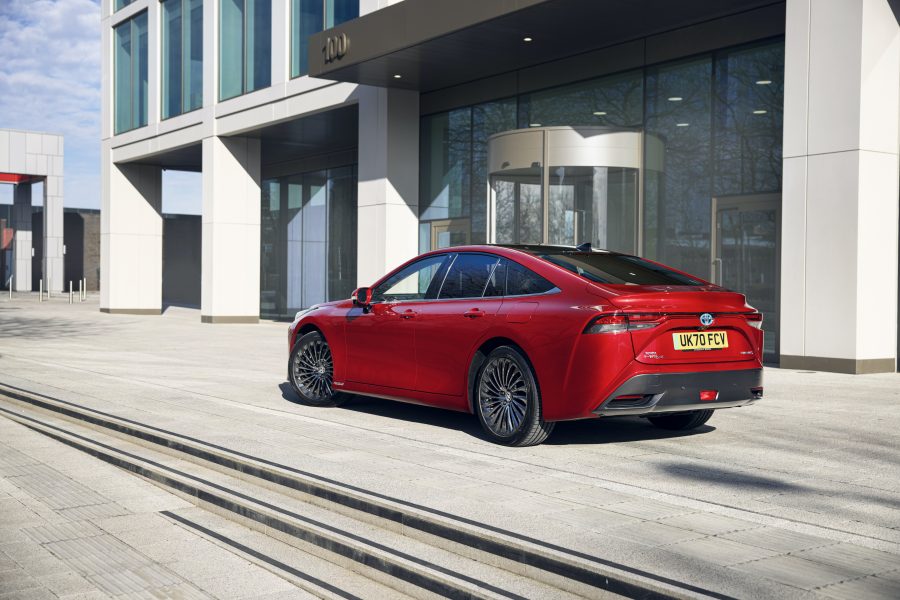
Auto Express: 3.5/5
Advancements in the tech since the first-gen car was launched mean that the fuel cell is 50% lighter and physically smaller, yet it makes 12% more power. Progress… is serene [and] the acceleration feels smooth and linear. The ride is forgiving yet the car is neatly balanced front to rear, so it feels stable and predictable. At speed, the only obvious noise is the subdued tyre roar.
The weight saving of hydrogen relative to a big battery is significant
Whereas a Tesla Model S promises 390 miles from a battery weighing roughly 500kg, the hydrogen that fills the Mirai’s tank weighs just 5.6kg and will carry you for an official range of 400 miles. The weight saving of hydrogen relative to a big battery is already significant in a car – it would be enormous once expanded to the size of an HGV.
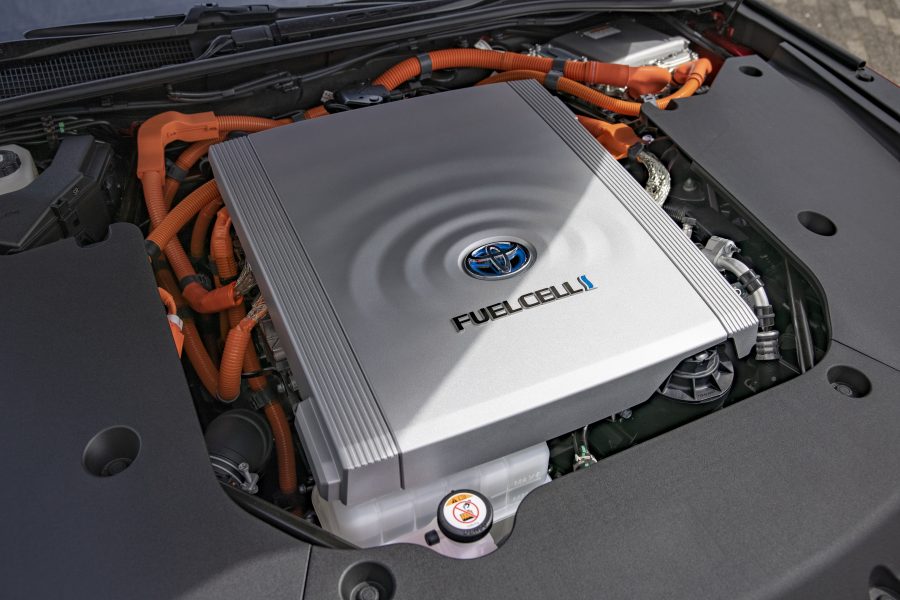
Driving Electric: 3.5/5
While the Mirai isn’t an electric car in the conventional sense, it feels broadly similar to many mainstream EVs in the way it drives. The big difference is range and refuelling time – if you’ve got the means to do so, you can fill the Mirai in around five minutes, returning a range of roughly 400 miles.
It’s applicable for the very lowest company car rates
The new Mirai feels much more luxurious – you sit lower, and the plush materials and widescreen infotainment system give it plenty of upmarket appeal. Push the starter button and you’re greeted by the sound of silence. In fact, this sense of calm continues right up to motorway speeds – the new Mirai is incredibly quiet and refined.
Of course, the fact it emits only water means that it’s applicable for the very lowest company car rates. Toyota claims the Mirai is better than net zero, in fact – removing harmful SO2 and NOx pollutants from the air as it drives. It’s [also] exempt from road tax and the London Congestion Charge.
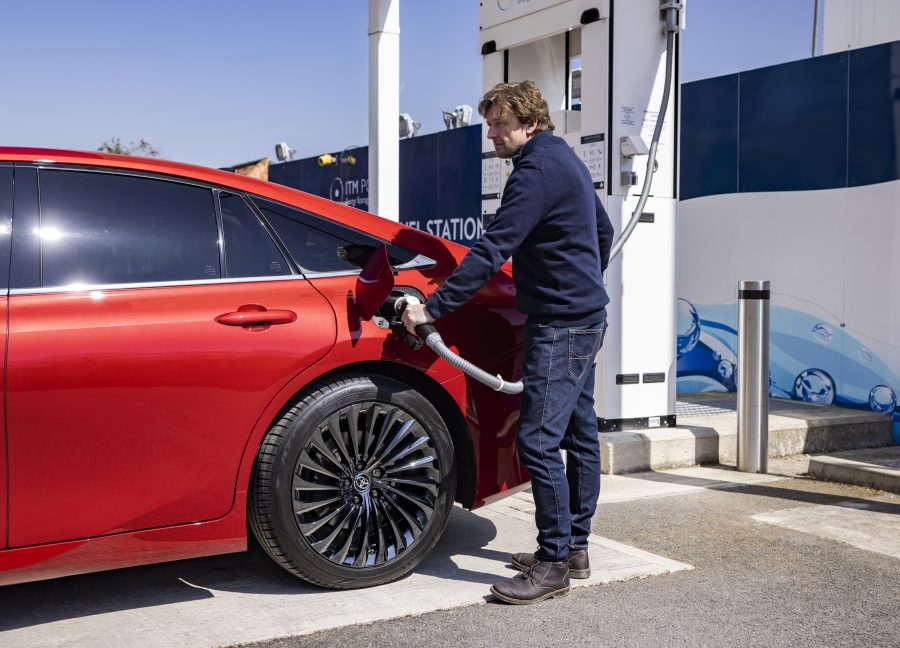
Pocket Lint
It’s longer – now built on Toyota’s TNGA platform – and much sportier looking. It’s distinctive… and those 20-inch alloy wheels are particularly pretty. Part of the new platform’s benefit is the second-gen Mirai is also larger than the original, so inside you get extra space for all occupants. Toyota has assembled the fuel-cell tanks into a tri-formation to distribute their position and weighting around the vehicle without hindering upon space.
It delivers the right balance of comfort and practicality
It’s an easy-breezy place to be sat while driving along, delivering the right balance of comfort and practicality that helps make an argument for this FCEV being a niche but logical luxe saloon option for a select number of buyers.
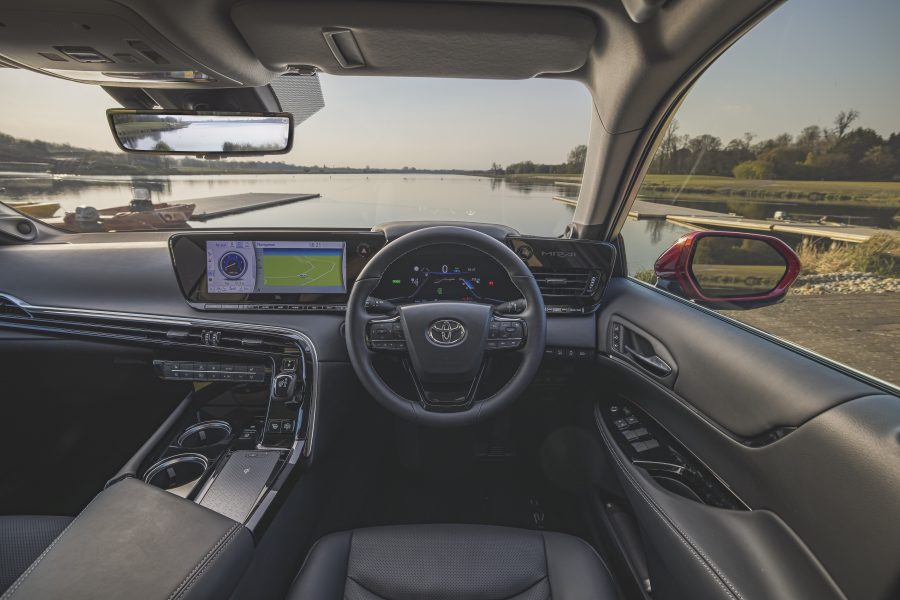
The Telegraph: 5/5
The last Mirai was a curio. This one, by contrast, is a car that you’d genuinely contemplate owning. In fact, I’ll go further than that: it’s a car you’ll actually want to own.
But this is not a car that stands up purely on the basis of its near-unique powertrain. Remove that from consideration, and it’s still excellent; handsome to look at, a pleasure to sit in, and quieter and more comfortable than almost any modern car when it’s out on the road.
It’s a car you’ll actually want to own
Crucially, it also now competes on price with battery-electric rivals – and can be leased for very tempting rates that include maintenance. Make no mistake; the hydrogen fuel cell car has arrived. Now, we just need the infrastructure to catch up.
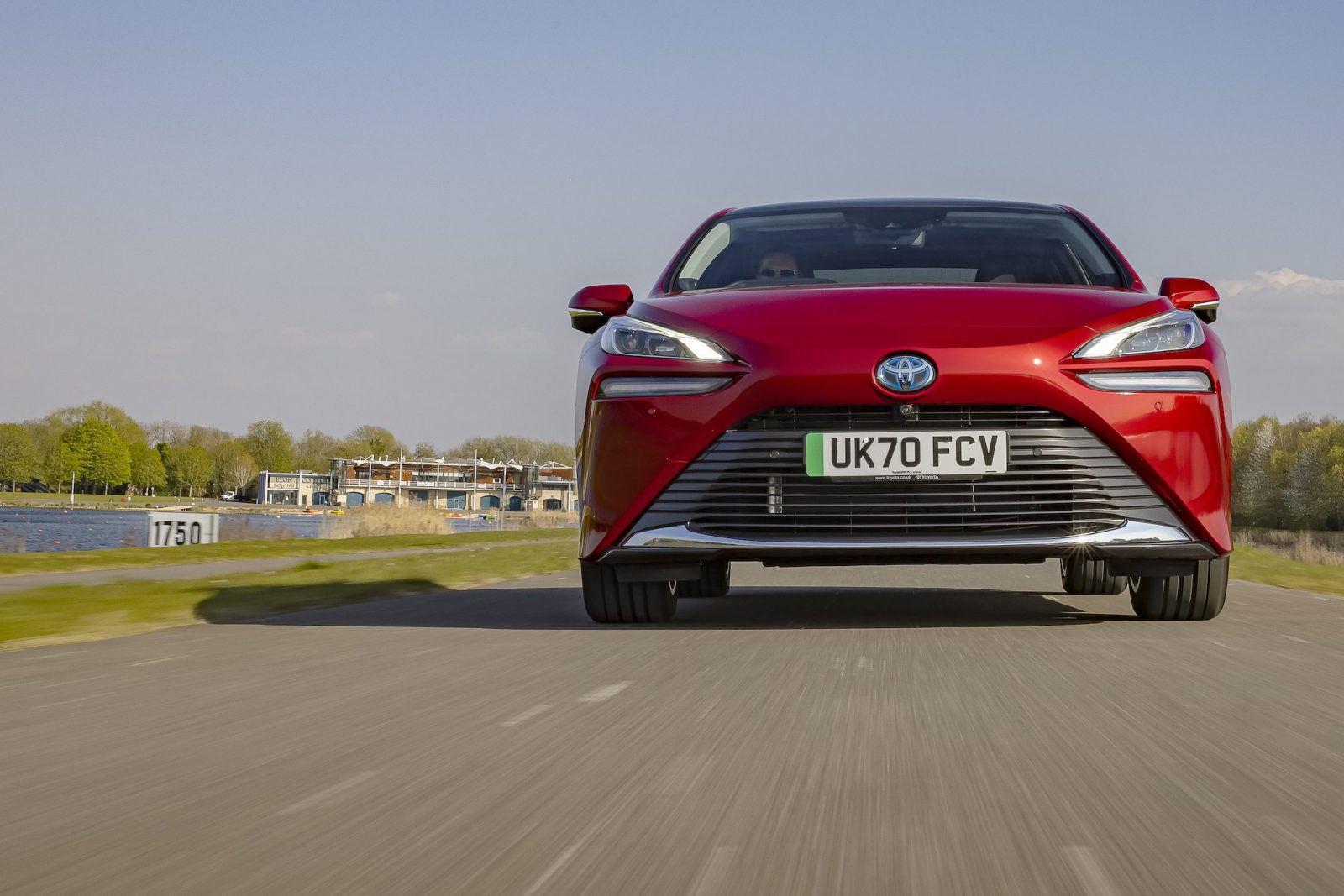
Top Gear: 7/10
This is the fuel cell car going mainstream. It drives like a big electric car, goes notably further on a tankful than they do on a recharge, fills up in ten minutes, and costs less to buy than a big 300-mile battery car. This new Mirai is a proper business, not a low-volume proof-of-concept.
It’s the culmination of decades of obsessively detailed optimisation and cost-reduction
There’s tangible love and care gone into the tuning. The cornering is certainly more level than you’d expect from its lovely and supple ride. It absorbs biggish undulations and sharp hits and smaller untidiness with equanimity. There’s barely any road noise either. This is as silent as automotive travel gets outside of the Phantom and S-Class realm of luxury.
[It’s] an amazing achievement, the culmination of decades of obsessively detailed optimisation and cost-reduction work for Toyota. If they can sell as many as they expect, general fuel cell prices will fall further, from which will follow more cars and more stations.
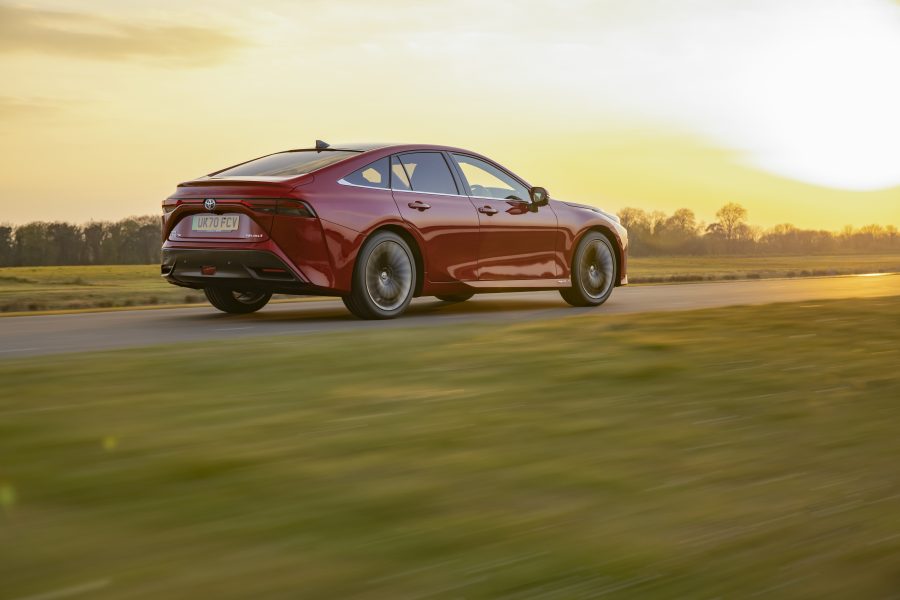
What Car?: 3/5
Once you’ve found somewhere to fill up, refuelling takes a matter of minutes, so there’s none of the waiting around for it charge up you get with an electric car (which can take the best part of an hour, even with a rapid charger). The Mirai’s large fuel storage capacity means it can travel further between top-ups than almost every electric car on sale.
Click here to learn more and to configure your own Toyota Mirai
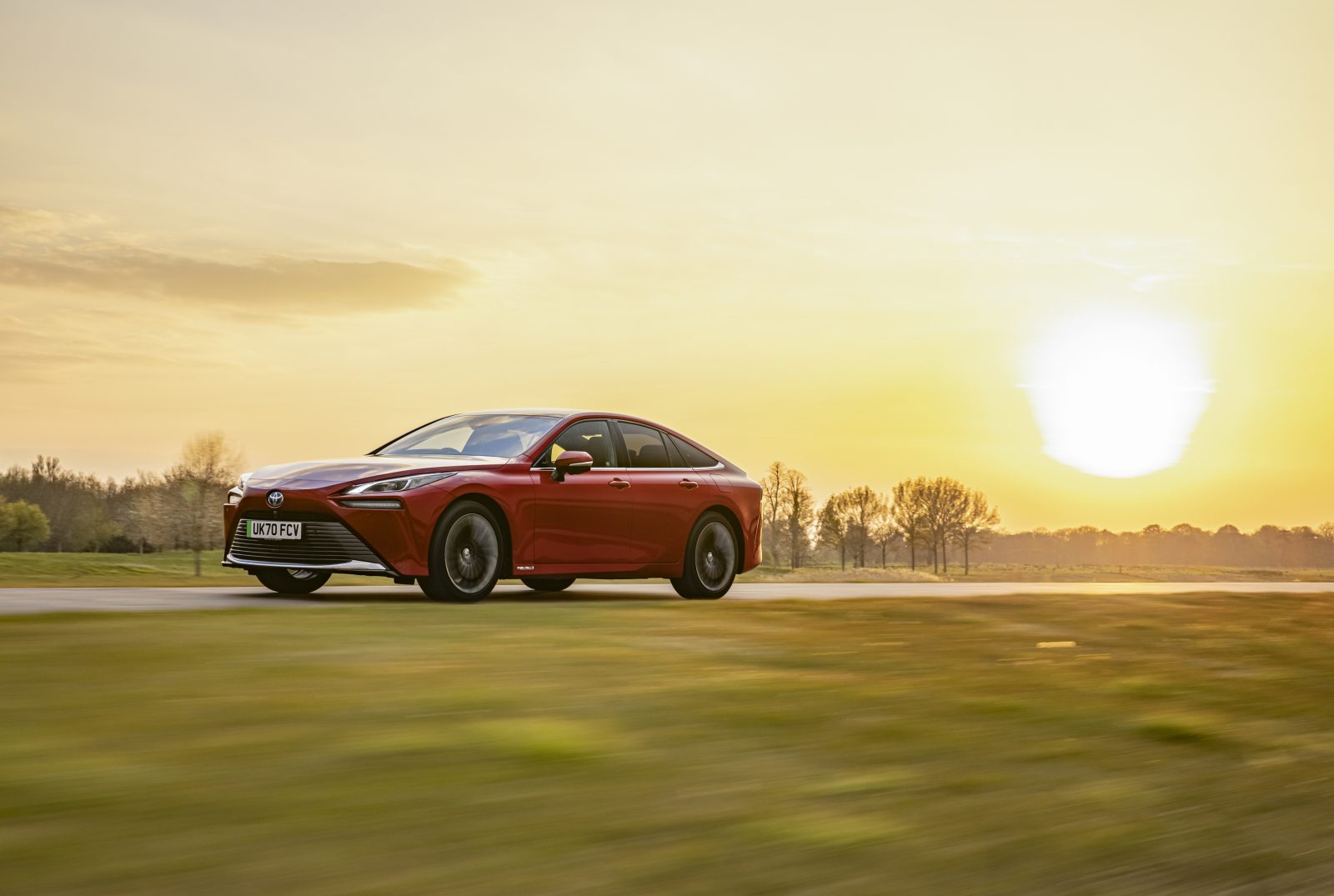
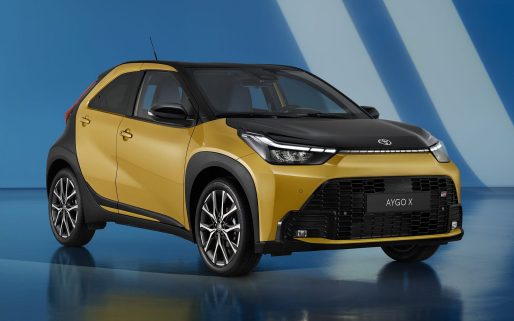
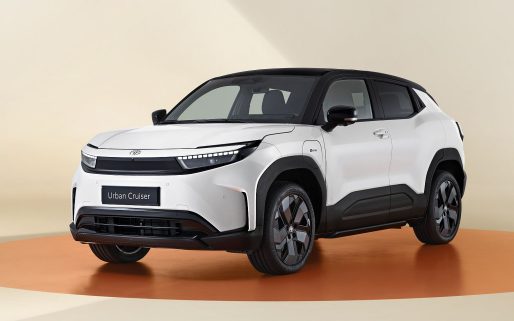
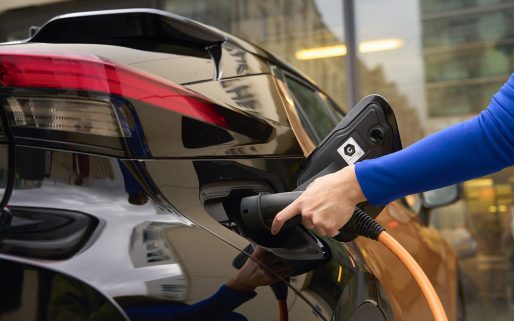
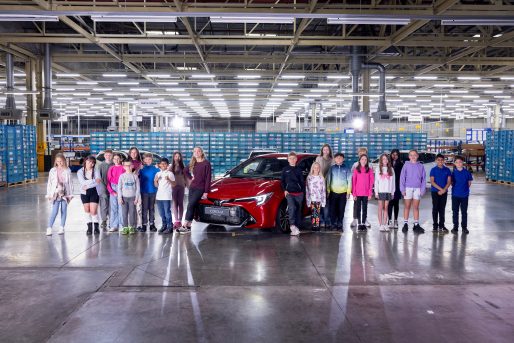
HFCEVs will have a place – but it is most unlikely for personal transportation. 97% of current H2 is from steam reformation of fossil fuel methane – so it’s not green. Even with Green H2, the inefficiencies are against HFCEV vs BEV – a 30% energy loss with initial hydrolysis, then transportation of the H2 (yes, I know about ITM – I have shares) then conversion back to electricity before the regular BEV losses means only 22% of the green energy makes it into the motors, compared to 73% for a BEV. Do we really have enough renewable energy available to allow for these inefficiencies?
For off-grid electricity generation (eg construction, or where railway electrification isn’t an option, shipping, possibly long range HGVs, possibly aviation) I believe HFCs will definitely have a role in the energy mix. But for small personal transportation? Most unlikely, and as such it wouldn’t receive my investment.
Hi John,
Thanks for your comment.
There are pros and cons to each different form of electrification, and each of these will play a part in sustaining a zero emissions society in the medium to long term.
That is why we are taking a holistic approach, showcasing our commitment to a multi-fuel future. For example, the production version of our bZ4X Concept are expected to commence next year: https://mag.toyota.co.uk/toyota-bz4x-concept/.
Thanks.
Just because Most H2 is made that way now doesnt mean it has to be. Its not as though electricity grids are green now is it, and furthermore electricity grids wont ever have the capacity it replace the petrol cars we have now. This is a far better technology to be developing and with the economy of scale would become far more efficient and far greener, non of the charging time and no high power electrical equipement that most people living in flats or high rise block wont ever have access too. I for one , and i know many others who think the same will not be buying a battery powered car, ever.
I’m impressed that now £billions are being ploughed into R&D of hydrogen powered transport of all kinds the doubters are being forced into accepting that ‘hydrogen has some kind of a future’.
You bet it does ! Irrespective of how many charging points there are the most convenient place to charge is at home. Millions of people in the U.K. will find it impossible to charge an EV at home because they live in flats or terraced houses or places where the don’t have a driveway or garage. Hydrogen powered cars can provide the answer to those problems once the infrastructure catches up. There will be a scramble by fuel retailers to provide refuelling for hydrogen powered vehicles when they realise their forecourts cannot provide sufficient places for electric only vehicles, with each one taking fifty minutes to an hour, to be parked up in order to charge.
If you accept that HGVs, buses and trucks are the next obvious targets for hydrogen, why wouldn’t you make their filling stations available to cars? The provision of electric charging points ballooned along with all kinds of apps when the industry realised that Governments were serious about stopping the production of petrol and diesel cars. The same is likely to happen with hydrogen when other manufacturers get serious and realise the limitations of pure EVs.
The moans about ‘how green is my hydrogen?’ are petty with hydrogen production technologies and the roll out of green energy sources progressing enormously. The question we ought to be asking is how does our existing power infrastructure cope if everyone is operating a pure EV. The answer is ….. it won’t, especially not with hundreds of thousands of new homes being built.
Hydrogen is the green fuel of the future and if infrastructure is intelligently designed, it doesn’t need power stations that produce nuclear waste for its production.
Can anyone tell me how long a battery will last in a electric car? If a battery lasts say 8 years what is going to happen to that car after that period of time as a battery for a car is going to cost £7000+, no one is going to buy a second hand car to have to buy a new battery to put in it at that price. So are cars only going to last 8 to 10 years??
Hi,
Inevitably a battery’s performance will degrade over time. In the sort of timeframe you mention, we wouldn’t expect a battery to need replacing, just that the range might be reduced slightly from when it was new. This degradation can be reduced by good charging practice though. Governments around the world are moving towards zero emissions, most notably the UK Government by 2035. As a manufacturer, we have to respond to this legislation. Whilst we will introduce battery electric vehicles next year, you can be sure that our long history and experience of working with batteries will inevitably mean excellent battery management technology. As you can tell from this article, we are also working on other technologies, like hydrogen because we believe a number of different technologies will be needed to sustain a zero carbon society in the long term. Thanks.